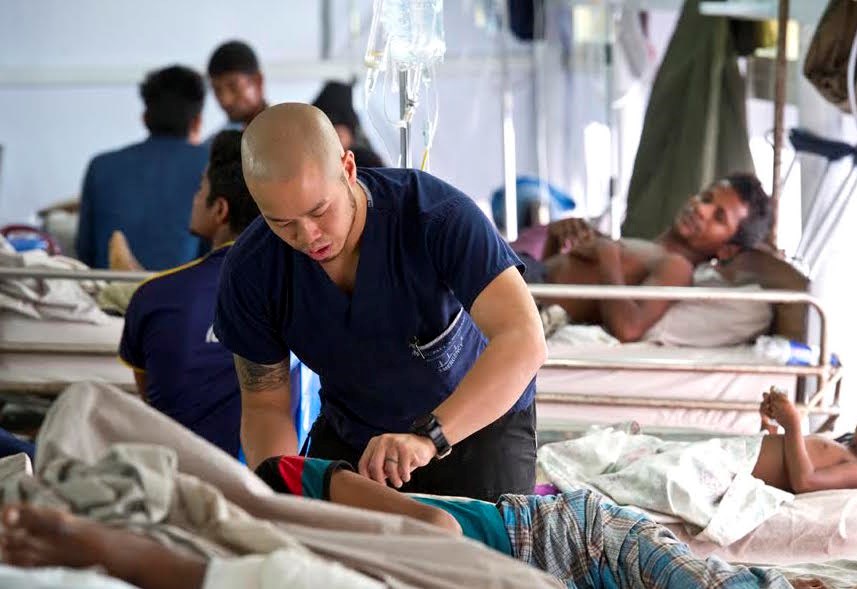Moses Li wasn’t sure what to expect when he boarded a plane to Bangladesh in October.
He had signed up to volunteer with Samaritan’s Purse, a faith-based international relief organization, and lend his nursing skills to the Rohingya refugee crisis.
It wasn’t the first time the Burnaby resident and St. Paul’s nurse was deployed abroad this year; in January and in May, he and his wife volunteered in northern Iraq.
“I’d been keeping my eyes peeled because I knew that Samaritan’s Purse is always looking for places to respond to. Eventually, I got an email and a call about seeing if I could leave and go because they had urgent needs to support the unit they set up to respond to this crisis,” said Li, 30, of his nearly three-week stint.
Since late August, more than 600,000 Rohingya refugees have fled from Myanmar to Bangladesh, according to the United Nations Office for the Coordination of Humanitarian Affairs (OCHA).
The Rohingya are a Muslim minority group that live in Rakhine State, but are not a recognized ethnic group by the Myanmar government. (The majority of Myanmar’s population is Buddhist.) They’ve been denied citizenship despite living there for generations.
Many Rohingya refugees have reported appalling violations of human rights and other abuses, including villages being burned down, parents or relatives being killed in front of children, and women and girls being raped or brutalized, according to OCHA.
Li recalled feeling “a little overwhelmed” on his first day in Bangladesh.
“Just between cultural barriers and being kind of thrust right into my first shift, and just how busy we were and how many patients we had on the unit. Some of them were pretty sick,” he said.
Li worked as an orthopedic surgical nurse and was looking after up to eight patients at one time. He dealt with everything from broken bones and fractures to amputations.
“A lot of it was motor vehicle accidents because of how densely populated and busy the areas were around the refugee camps. Some people had falls and other traumatic injuries as they were leaving the country where they came from. There was a lot of complications because they received delayed care because they just didn’t have any access to surgical care until they arrived,” he explained.
Some days were harder than others, noted Li, including one 24-hour period where a woman died, a child was very sick and “there was just a lot going on.”
“In this kind of care, orthopedic surgical care, a lot of things you’re doing for people and for their benefit is painful, unfortunately, especially if you’re doing it to kids who don’t understand what’s happening,” he said. “There were a couple of days where I didn’t want to feel like I was inflicting pain on people who already suffered so much. But that was always balanced out with knowing their outcomes will be better.”
Often times, communication was non-verbal as there were only a few translators on hand. This could be very frustrating for patients, many of whom had never experienced hospital care, said Li.
“I think, eventually, they started to understand we were there for them, and were on their side. You could see quickly how fast they warmed up. It was really encouraging because you could really see how much they cared for each other.”
By getting his story out there, Li hopes to create awareness around issues not happening in our own backyard.
“I think it’s very easy to be overwhelmed by how many passings are happening in the world and to not necessarily know what to do about it,” he said, adding donating to organizations like the Red Cross, Doctors Without Borders and Samaritan’s Purse is a good start.
“It’s not a money grabber. They need funding to do what they do. I think going on their websites and looking to see where giving is most needed. I think as North Americans, a lot of us are able to do that.”



